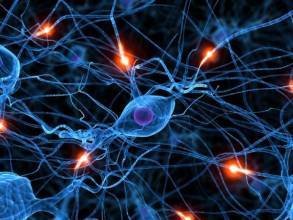

MSL exclusive Medical equipment knowledge sharing!
Watching a lot of medical equipment news and learning some knowledges of medical equipment. All the hardworking just to be a profesional medical equipments supplier and service better for you. We hope the information about medical we provide could helps you to choose your suitable products.
|
Huntington's disease (HD) - Medsinglong Clicks:Updated:2018-05-28 15:05:40 |
|
Huntington's disease is a genetic disease that usually develops between the ages of 30 and 50. The patient's cells mistakenly produce a hazardous substance called "Huntington protein." These abnormal proteins accumulate and block some of the brain cells, particularly those associated with muscle control, leading to uncontrollable tremors in patients and the development of dementia.
Huntington's disease (HD) is a genetic degenerative brain disease affecting thousands of people in Western countries. There is currently no effective treatment. The cause of HD is a mutation in the huntingtin gene. The corresponding mutant Huntington's protein (Htt) has a tendency to polymerize. Although the formation of Htt protein polymer is related to the pathogenesis of HD, it is still unclear whether it actually caused damage to the nervous system.
Huntington's disease is the first completely dominant human genetic disease discovered by humans. After reaching the middle age, the sick people will gradually begin to lose their balance, gradually become unable to take care of themselves, and finally die prematurely. The decline in abilities first manifested itself in the beginning of a slight problem with intelligence. After that, the extremities began to tremble, and finally there was deep depression, with occasional hallucinations and delusions. There is no way to “appeal” for this disease: the disease cannot be cured. However, patients with this disease must be tortured for 15 to 25 years before they die.
genetic factors

Mexican experts believe that Huntington's disease may not completely depend on genetic factors, and may also be related to toxic proteins in the brain.
The report said that three scientists such as Masieu Trigo of the Institute of Cellular Physiology at the National Autonomous University of Mexico studied the causes of Huntington's disease and published relevant articles.
Huntington's disease usually begins at 30 to 50 years of age, and the patient's cells mistakenly make a harmful substance called "Huntington protein." These abnormal proteins accumulate and block some of the brain cells, especially those associated with muscle control, causing uncontrollable trembling and convulsions in the patient and the development of dementia.
Trigo said that traditional theory holds that Huntington's disease is a neurodegenerative disease of the brain caused by a strong genetic factor, but it has not yet been completely recognized by the pathological mechanism that causes cognitive decline of the brain. His research team conducted experiments on a mouse model infected with Huntington's disease. They fed mice with a type of mitochondria that caused damage to the mitochondria and found that a small amount of glutamate accumulates on the huntingtin protein, increasing the level of endotoxins in the brain's nerve cells, resulting in a decrease in the number and quantity of nerve cells in the brain until the nerves All cells died.

He said that when the scientific team examined the patient's brain slice, they found that the huntingtin protein contained folded nucleotides, which caused the loss of at least 30% of the weight of nerve cells in the brain's sulcus area. Therefore, they believe that the "culprit" causing this abnormality is likely to be toxic protein. Toxic protein is usually found in the brain and other tissues. It is a substance that can replicate, proliferate, and cause fatal infections without relying on any genetic material. Its abnormal accumulation form can make the brain tissue spongy and lead to brain atrophy. Become dementia or even die.
Insulin neuroscientist Astris Rasmussen also said that in clinical practice, some patients do not have a family history of Huntington's disease, indicating that the disease may not completely depend on genetic factors.
|

Address:85th, Baiyun Road, Shiqiao Street, Panyu District, GuangZhou City Sitemap
Tel:+86-20-84899760 Email:Cindy@medmsl.com / cindy@medicalequipment-msl.com Skype:msl_saler01 Mob:+86 138 2644 8637

Connect us in Whatsapp or Facebook Messenger

Messenger
